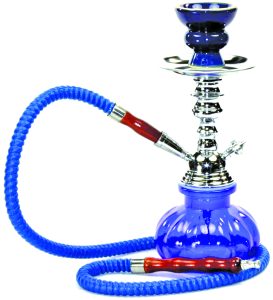Home News NCD Commission calls for urgent action to regulate e-cigarette, hookah usage
…alarming rate of usage continues despite harmful effects
The Presidential Commission on the Prevention and Control of NCDs has voiced its concerns over the use of and prevalence of e-cigarettes and hookahs, calling for urgent regulation.
Chairman of the Presidential Commission, Dr Leslie Ramsammy on Saturday stated that the Tobacco Control Act 2017 was enacted in Guyana five years ago. This week, Guyana also joins the World No Tobacco Day observation.
The Presidential Commission underscored its disappointment in the weak implementation of the law in Guyana, while also highlighting that the global efforts to reduce the risk of tobacco use continue unabated. The Commission has committed to intensifying its effort to lead the fight against tobacco and tobacco product use in Guyana.
“We note that Big Tobacco, the consortium of tobacco companies around the world, has come together to find new ways to introduce tobacco and tobacco products to a new generation of people. One of their strategies is to add new tobacco products, such as e-cigarettes and hookah products, to bypass regulations that try to restrict use of traditional cigarettes and cigars. The NCD Commission, therefore, highlights the need for urgent regulations of these products in Guyana,” a statement released to the media on Sunday outlined.
The use of both e-cigarettes and hookahs in Guyana started before the introduction of the Tobacco Control Act 2017 and has gained even more popularity since the passage of the Tobacco Control Act. The use of either the e-cigarette or hookah is not a healthier alternative to traditional tobacco products.
The Tobacco Act 2017 recognises that the alternatives the tobacco industry has provided do not represent a healthier alternative to traditional tobacco products and, therefore, the regulations in the Tobacco Control Act 2017 equally applies to these products.
“The Commission is concerned that both e-cigarettes and hookah products are imported, distributed and sold in shops, stores and street-side vendor stalls. This is in contravention of the Packaging and Labelling Regulations (2018) which were passed under the Tobacco Control Act 2017. Hookah has become an integral part of bars and restaurants around the country and hookah bars are now popping-up across the country at an alarming rate,” it also notified.
Clauses 25 (2), 29, 30 and 33 of Guyana’s Tobacco Control Act requires that e-cigarette and hookah products must be properly packaged and labelled before they are permitted to enter Guyana and before they are allowed to be distributed and sold in the country.
The Commission is of the view that none of the e-cigarette and hookah products being sold to the Guyanese public adhere to the clear definition and provisions of the Packaging and Labelling Regulations (2018) under the Tobacco Control Act 2017.
Under Section 25 (2) of the Packaging and Labelling Regulations (2018), hookah products must meet the same packaging and labelling requirements as traditional tobacco products.
Dr Ramsammy added, “The truth is at this time, hookah products imported, distributed and sold in Guyana, invariably, do not meet the packaging and labelling requirements. These products are seen displayed for sale on store shelves and can even be handled directly by the consumer prior to sale, a circumstance which is prohibited according to Section 29 of the regulations. Additionally, these products are now being sold on the internet via various social media platforms with delivery services being offered in Guyana. This is in contradiction to Section 30 of the Regulations. While we recognize that some hookah products do not contain tobacco, these products are almost identical to the ones that do contain tobacco and, therefore, must adhere to the packaging and labelling requirements.”
Hookah and e-cigarettes are among products defined as electronic nicotine delivery systems (ENDS). There are also electronic non-nicotine delivery systems known as ENNDS. Among the ENDS and ENNDS products are vapes, vaporisers, vape pens, hookah pens, electronic cigarettes (e-cigarettes or e-cigs), e-cigars, and e-pipes.
The ENDS products use an “e-liquid” that usually contains nicotine derived from tobacco, as well as flavourings, propylene glycol, vegetable glycerin, and other ingredients. The liquid is heated to create an aerosol that the user inhales. Many ENDS products are manufactured to look like conventional combusted cigarettes, cigars, or pipes.
These products may have reusable parts, or they may be disposable and only used once before they are thrown away. Similarly, ENNDS products are made to look like ENDS products.
“The Presidential Commission on the Prevention and Control of NCDs emphasizes the truth – there are no safe tobacco products, whether traditional or in the category of ENDS or ENNDS products. In addition to the risks of diseases, disabilities and death that traditional tobacco products impose on users, ENDS products also have been shown to have other dangers associated with them. These include over-heating, fires and explosions, lung damage and seizures and other neurological symptoms.”
While Guyana has made a quantum leap in enacting laws for regulating tobacco products which are among the most potent risk factors for NCDs, disabilities and death around the world, the Commission admitted that Guyana has had a poor track record when it comes to enforcing the laws.
“Guyana is not unique in this regard. Most of the countries, particularly developing countries, have shown little to no willingness to effectively enforce the tobacco products regulations.
The Presidential Commission on the Prevention and Control of NCDs urges the relevant authorities to pay attention to the growing importation, distribution and use of ENDS and ENNDS, including e-cigarettes and hookahs and to enforce the Packaging and Labelling Regulations 2018 made in accordance with the Tobacco Control Act 2017,” the statement relayed.

